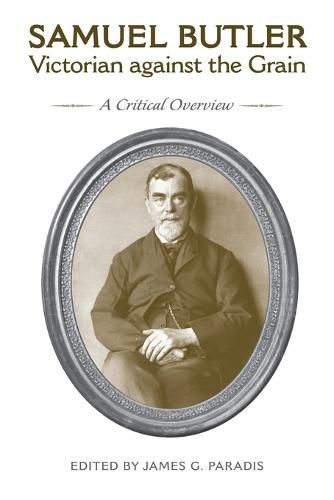Readings Newsletter
Become a Readings Member to make your shopping experience even easier.
Sign in or sign up for free!
You’re not far away from qualifying for FREE standard shipping within Australia
You’ve qualified for FREE standard shipping within Australia
The cart is loading…






This title is printed to order. This book may have been self-published. If so, we cannot guarantee the quality of the content. In the main most books will have gone through the editing process however some may not. We therefore suggest that you be aware of this before ordering this book. If in doubt check either the author or publisher’s details as we are unable to accept any returns unless they are faulty. Please contact us if you have any questions.
Samuel Butler (1835-1902), Victorian satirist, critic, and visual artist, possessed one of the most original and inquiring imaginations of his age. The author of two satires, Erewhon (1872) and The Way of All Flesh (1903), Butler’s intellectually adventurous explorations along the cultural frontiers of his time appeared in volume after eccentric volume. Author of four works on evolution, he was one of the most prolific evolutionary speculators of his time. He was an innovative travel writer and art historian who used the creative insights of his own painting, photography, and local knowledge to invent, in works like Alps and Sanctuaries (1881), a vibrant Italian culture that contrasted with the spiritually frigid experience of his High Church upbringing.
Despite his range and achievement, there remains surprisingly little contemporary analytical commentary on Butler’s work. Samuel Butler, Victorian against the Grain is an interdisciplinary collection of essays that provides a critical overview of Butler’s career, one which places his multifaceted body of work within the cultural framework of the Victorian age. The essays, taken together, discuss the formation of Victorian England’s ultimate polymath, an artistic and intellectual ventriloquist who assumed an extraordinary range of roles - as satirist, novelist, evolutionist, natural theologian, travel writer, art historian, biographer, classicist, painter, and photographer.
$9.00 standard shipping within Australia
FREE standard shipping within Australia for orders over $100.00
Express & International shipping calculated at checkout
This title is printed to order. This book may have been self-published. If so, we cannot guarantee the quality of the content. In the main most books will have gone through the editing process however some may not. We therefore suggest that you be aware of this before ordering this book. If in doubt check either the author or publisher’s details as we are unable to accept any returns unless they are faulty. Please contact us if you have any questions.
Samuel Butler (1835-1902), Victorian satirist, critic, and visual artist, possessed one of the most original and inquiring imaginations of his age. The author of two satires, Erewhon (1872) and The Way of All Flesh (1903), Butler’s intellectually adventurous explorations along the cultural frontiers of his time appeared in volume after eccentric volume. Author of four works on evolution, he was one of the most prolific evolutionary speculators of his time. He was an innovative travel writer and art historian who used the creative insights of his own painting, photography, and local knowledge to invent, in works like Alps and Sanctuaries (1881), a vibrant Italian culture that contrasted with the spiritually frigid experience of his High Church upbringing.
Despite his range and achievement, there remains surprisingly little contemporary analytical commentary on Butler’s work. Samuel Butler, Victorian against the Grain is an interdisciplinary collection of essays that provides a critical overview of Butler’s career, one which places his multifaceted body of work within the cultural framework of the Victorian age. The essays, taken together, discuss the formation of Victorian England’s ultimate polymath, an artistic and intellectual ventriloquist who assumed an extraordinary range of roles - as satirist, novelist, evolutionist, natural theologian, travel writer, art historian, biographer, classicist, painter, and photographer.